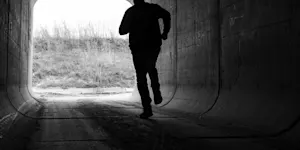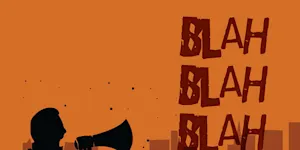What Makes This Word Tick
The word "vacillate" captures a certain indecisiveness—you know, that feeling when you're standing in the grocery store aisle, unsure whether to pick the chocolate chip cookies or the oatmeal ones. It's about wavering back and forth, unable to come to a firm decision, much like a gentle breeze sways a sailboat.
If Vacillate Were a Person…
Vacillate would be the type often found staring at a menu too long or standing in front of their closet unsure of what to don for an outing. They are pleasantly introspective, deeply considering every option, perhaps with a bit of charming uncertainty. A thinker rather than a doer—at least until they've made up their mind!
How This Word Has Changed Over Time
Originally derived from the Latin "vacillare", meaning to sway, the word has kept its fundamental meaning over centuries. Yet, while it used to imply a physical swaying, in contemporary English, it's more about metaphorical indecision or lack of resolution.
Old Sayings and Proverbs That Use Vacillate
While "vacillate" itself doesn't star in old sayings, the spirit it captures is echoed in the age-old advice: "He who hesitates is lost." The essence of hesitation and fluctuation is timeless, as are the supposed perils that accompany them.
Surprising Facts About Vacillate
Though vacillate seems a straightforward term, it has earned a niche following among thesaurus enthusiasts and those seeking a precise word for that particular kind of indecision. It's a favorite in psychological and philosophical discussions about human behavior and decision-making.
Out and About With This Word
In the world of politics, vacillate often makes its presence known, capturing the essence of politicians' apparent shifts on policies. It's also common in social situations, whether friends are trying to decide between restaurants or choosing the next vacation destination.
Pop Culture Moments Where Vacillate Was Used
While not headlining in blockbuster movies, the term vacillate might be tucked away in scripts or books addressing characters with a penchant for indecision. Think of your favorite film or novel where a character famously couldn't make up their mind—that's vacillate in action!
The Word in Literature
Vacillate fits snugly into literary works that deal with themes of choice and consequence. It’d feel right at home in a nuanced novel exploring the inner conflicts and back-and-forth thoughts of its characters.
Moments in History with Vacillate
During the Cuban Missile Crisis, world leaders were vacillating, caught between choices fraught with peril. It’s a word that encapsulates those tense periods in history where every decision could pivot the future dramatically.
This Word Around the World
In French, you might say "hésiter" for a similar meaning, while in Italian, it's "vacillare." Across cultures, this sort of indecisiveness is a universal trait, present in every language and society's lexicon, demonstrating a shared human condition.
Where Does It Come From?
Tracing back to Latin, "vacillare" primarily meant to sway to and fro, like a pendulum. Over time, as the term entered Middle English, it evolved to embody the idea of wavering in one’s mind, not just physically.
How People Misuse This Word
Some folks might confuse vacillate with procrastinate. The former is more about indecision, while the latter involves delaying actions, often due to laziness or avoidance, rather than uncertainty.
Words It’s Often Confused With
Procrastinate: Involves delaying tasks but is not about indecision.
Oscillate: Usually refers to physical movement back and forth, while vacillate is about thinking.
Hesitate: Implies a pause before doing something, which can overlap but isn't precisely the same as vacillation.
Additional Synonyms and Antonyms
Synonyms: Waver, fluctuate, dithering.
Antonyms: Decide, resolve, determine.
Want to Try It Out in a Sentence?
"Despite knowing the importance of a timely decision, she would often vacillate, weighing every potential outcome until the last possible moment."
















